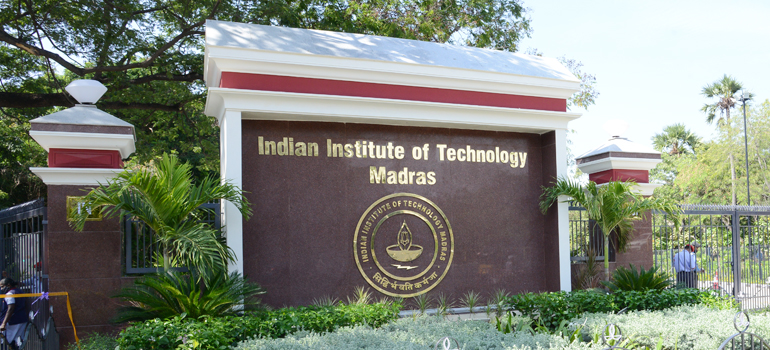
Dir Veezhinathan Kamakoti wants to expand the institute’s online BSc and on-campus masters’ courses.
Every year about 1.5 million students take the Joint Entrance Examination (JEE) for getting into one or the other of the 23 Indian Institutes of Technology in the country, but only 15,000 get admission. “What are we going to do for the other 1.485 million students?” asks Prof Veezhinathan Kamakoti, who took over as the Director of the Indian Institute of Technology Madras (IITM), last month.
“We are a public-funded institution; the answer to this is very important from a societal perspective,” he points out. Kama, as he is called, has lots of plans for IITM for the next five years of his tenure. High among them are expanding online BSc courses for students and on-campus international masters’ courses.
Future plans
The online B.Sc degree (in programming and data science) was started by Kamakoti’s predecessor last year-a world’s first. In a chat with BL on Campus, Kamakoti observed that in 2003-04, “when nobody even remotely thought of something like Covid-19”, IITM started a National Programme for Technology-enhanced Learning (NPTEL). Under this, hundreds of thousands of hours of lectures have been uploaded, so that any student can access it any time. NPTEL is a college-at-home; millions of students have benefitted by this, he says.
“The culmination of all that experience was the online BSc programme,” explains Kamakoti. He says that in the next few years “we can make the total student strength of online BSc to 20,000,” nearly twice the number of on-campus students in IITM today.
“We are enthused by the online courses and we will start more such programmes once this pandemic ends,” he says, adding that his vision is to take the student strength to 50,000. “If each of the 23 IITs enroll 50,000 students, we will be able to reach a million students,” he said.
Alongside, Kamakoti plans to make IITM a ‘ Vishwa-guru’ (global teacher). Aligning IITM’s programmes with the goals of the National Educational Policy, “we are starting nine international MTech programmes”, if necessary, in collaboration with universities abroad. Accordingly, there would be more on-campus international students and faculty.
The new director is also keen on developing the humanities departments and offering courses linking humanities and technology. “Human-Computing interaction” (HCI) is an area where humanities studies are needed, he says. For example, how to balance security issues with privacy concerns, is an important question, says Kamakoti said. If a committee sits to draft a policy for a technology, it should have an equal appreciation of the society too, he adds.
In the context of humanities, he spoke of the National Language Translation Mission, which aims to build speech-to-speech machine translation and to evolve a unified language interface for translating Indian languages. Natural Language Processing (NLP) techniques would be employed for this.
Social tensions in IITM
In the last few years, IITM has seen the rise of social tensions, with some people alleging caste-based discrimination. IITM has consistently denied any such discrimination. Asked about this, Kamakti says that at IITM “there wouldn’t be even a thought” of discrimination of any form, be it gender, caste or religion. “If any complaint comes it shall be taken very seriously and shall be acted upon immediately in a fair manner,” he said. He stressed that the actions taken would be “transparent to all the stakeholders”.
On student suicides, he said that IITM had set up counselling facilities, such as Saathi, to ensure “quick intervention so that they don’t take any unfortunate step.” Lots of students have used these facilities and have come out of difficulties, he said, adding that, however, sometimes some students have taken the unfortunate step, which is “deeply saddening”.
This happens during the time interval between the onset of depression and the availability of help and as such, the answer lies in narrowing the interval. During his tenure, he would strengthen the systems for student welfare, Kamakoti says emphatically.
Original News Link
https://www.iitm.ac.in/happenings/press-releases-and-coverages/iit-madras-chalks-out-plans-teach-50000-students